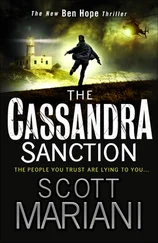“If you see a wounded German,” he said, “shove him out and have no nonsense about it.”
He was all against taking prisoners — and for murdering them after surrender. He told with sympathy and approval of how a corporal under him butchered a group of German boys. “Can I do these blokes in, sir?” asked the corporal, pointing to a bunch of disarmed enemies.
“Please yourself,” said the sergeant-major. . . .
When they had been “done in”, the honest corporal, a released convict from Dartmoor prison, came back to the sergeant-major very gratified and honoured, and, still in favour, discussed the technical difficulties of withdrawing a bayonet quickly in order to be ready for the “next fellow”.
That was, that is, the spirit to which war brings a human being. Sergeant-Major Franklin had his abundant equivalents in every army engaged. We are able to quote an English document, freely published. Participants in many other countries had less freedom. On the whole the English were as gentle as any other soldiers. But fear and bloodlust, it is plain, wipe out all the slowly acquired restraints and tolerance of social order very quickly and completely from any breed of men. History must not be written in pink and gilt. Prisoners and wounded were not simply neglected and ill-treated and “shoved out”. Many were actually tortured to death — either by way of reprisals or in sheer wanton cruelty. There is also a series of photographs of foully mutilated bodies, mutilated and indecently displayed while they were dying or immediately after they were dead. Those millions marched indeed right out of civilization, right out of any sort of human life as we know it to-day, marched down to something viler than mere bestiality, when they marched into the war zone.
After the summer of 1918, which brought with it the certainty of ultimate defeat, the combatant energy of Germany evaporated. Everywhere there was distress and hunger due to a rigorous blockade. The discipline of the land relaxed; the country behind the front was infested by stragglers; the Higher German Command found itself now, like its antagonists, unable to rely upon the men to advance, found itself unable to rely upon their resistance to an enemy attack. They became eager to surrender — taking the off-chance of meeting experimental corporals from Dartmoor on the way.
Wherever there was still loyalty and obedience, however, men were still callously sacrificed by the Higher Command. War Pictures (vol. xxvii, 23842 et seq,) show the German machine-gunners in their pits, on the defensive against advancing British and American troops. These men allowed themselves to be drugged and chained to their weapons, and so continued to fire and kill until the attack came up to them. Then they found small mercy. They were bayoneted or their brains were beaten out. They paid for the inventions of their masters. They paid for the hatred of Germany the introduction of poison gas had evoked in every attacking army. Such residues of senseless devotion availed nothing against the massive pressures that were at last exhausting Germany. In November the Kaiser, the War Lord, was in flight; a humiliating Armistice had been concluded and the German armies were streaming home in disorder, incoherently revolutionary.
Upon that phrase, “incoherently revolutionary”, our account of the main war may very well end. Here we will only allude to the defeat and demoralization of the Italian armies after the battle of Caporetto, when 800,000 were either killed, wounded, taken prisoner, or (sensible fellows) “went home”. Nor will we describe the naval battles, of which the chief and last was Jutland. It was the last, because afterwards the German admirals were faced by the threat of mutiny if they essayed another fight. Whether it was or was not a victory for the British was never exactly determined. The controversy died out during the Polish wars.
The War Pictures volumes give many photographs and accounts of these naval encounters. We have, for example, a whole series of snapshots of a British cruiser in the Battle of Jutland, the Defence steaming at full-speed-ahead to attack and finish up a smashed and sinking German battleship, the Wiesbaden. The onrush of that fierce mechanism is terrific. It seems invincible and overpowering. It has an undeniable splendour. Then suddenly a series of blinding flashes show the Defence has been hit by the fire of some other German battleship coming to the help of her sister ship, and in a moment she has blown up and gone; she is no more than a mounting unfolding column of smoke and flying fragments, including, we realize with an effort, the torn and scalded bodies of eight hundred men. Then a welter of littered tumbled water. . . .
There is no end to the multitude of such pictures.
But let us return to our phrase “incoherently revolutionary”. That is the key to the whole human situation at that time. The distaste for the war throughout the world was enormous, if not in its opening phases, then certainly before the second year was reached. It bored; it disgusted. Its events had none of the smashing decisiveness that seizes the imagination. Even the great naval battle of Jutland was, from the point of view of spectacle, a complete failure. None the less, for a very simple reason a comparatively small minority of resolutely belligerent persons was able to keep this vast misery going. On the one hand the war was in accordance with the ruling ideas of the time, while on the other the hundreds of millions whose astonishment and dismay deepened daily, as horror unfolded beyond horror, had no conception of any alternative pattern of life to which they could turn as a refuge from its relentless sequences.
To cry “End the war” ended nothing, because it gave no intimations of what had to replace belligerent governments in the control of human affairs. The peace the masses craved for was as yet only a featureless negative. But peace must be a positive thing, designed and sustained, for peace is less natural than warfare. We who have at last won through to the Pax Mundi know how strong and resolute, how powerfully equipped and how vigilant, the keepers of the peace must be.
8. The Impulse to Abolish War; The Episode of the Ford Peace Ship
Table of Contents
One quaint expedition, grotesque and childish and yet an augury of greater things to come, flits very illuminatingly across the dreadful record of these war years. It is the voyage of a passenger steamship from New York to Norway. The dark curtains of oblivion fall in heavier and heavier folds before the thundering battleships of the twilit Battle of Jutland; their forgotten names sink back into a vague general impression of huge flame-spouting masses that rush through smoke and mist to their fate; only a specialist can tell us now whether the Lützow or the Friedrich der Grosse, the Lion, or the Iron Duke, the Vanguard or the Colossus perished with its complement of men or staggered out of that battle. They have become monstrous irrelevances. There is nothing but their size, and the smashing and drowning of hundreds of men in them, to make them more significant to us now than an exploding casket of fireworks. But steaming its way across the Atlantic a few months before Jutland was fought came this other ship, a passenger boat of the Scandinavian-American line, the Oscar II, whose voyage remains to this day important and interesting, because in the most simple and artless fashion it mingled the new conceptions of life that were coming into being, with all the prevalent weaknesses of the time. The Oscar II is better known in history as the Peace Ship of Henry Ford. It is a gleam of tragic comedy amidst the universal horror.
This Henry Ford was a very natural-minded mechanical genius, without much education or social sophistication, a great friend of, and kindred spirit with, that Edison whose career has been traced in the chapter of human history dealing with the development and exploitations of inventions at the close of the nineteenth and the beginning of the twentieth century. Born and brought up in a period of economic expansion, Ford took economic expansion as if it were a necessity inherent in things, and never began to doubt continual progress until he was a man of over seventy. That was his good fortune. That gave him the confidence to design an automobile as sound and good and cheap as could be done at that time, and to organize the mass production of his pattern with extraordinary energy and skill, because his mind was untroubled by the thought that there could be a limit to the number of possible purchasers. He marketed his “flivver”, or “tin lizzie”, as it was affectionately called, in enormous quantities, and in consequence he revolutionized the road transport and town planning of America. He changed the shape of every growing town by enabling the small householder to live further from the work and business centre than had ever been possible before. He did more than any other single man to drive the horse not only from the road but, by making farm tractors, from the fields. He created factories at Dearborn that even to-day seem vast. He became enormously rich and an outstanding “character” in the world, and particularly in America. And he remained curiously simple and direct in his outlook upon life.
Читать дальше











